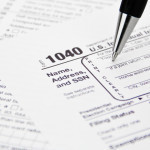 Today’s top story: When to consider a student loan lawyer. Also in the news: Why gutting the Consumer Financial Protection Bureau will impact your wallet, how much you should expect to pay when applying to college, and why you should try a credit union if you’re looking for free checking.
Today’s top story: When to consider a student loan lawyer. Also in the news: Why gutting the Consumer Financial Protection Bureau will impact your wallet, how much you should expect to pay when applying to college, and why you should try a credit union if you’re looking for free checking.
When to Consider a Student Loan Lawyer
Making a big decision.
Your Wallet Will Suffer If This Agency Is Gutted
It’s on the chopping block.
Applying to College? Expect to Pay at Least This Much
Get ready.
If You Want Free Checking, Try a Credit Union
Avoiding monthly maintenance fees.
 Today’s top story: NerdWallet’s best bank accounts and credit unions of 2017. Also in the news: Tips for investing in your 30s, using apps to save money without thinking, and the five biggest tax breaks for the self-employed.
Today’s top story: NerdWallet’s best bank accounts and credit unions of 2017. Also in the news: Tips for investing in your 30s, using apps to save money without thinking, and the five biggest tax breaks for the self-employed. Today’s top story: Why to avoid financial planning over the holidays. Also in the news: What President Trump will mean for mortgage rates, things banks and credit unions do that you don’t know about, and how waiting for Black Friday deals can really pay off.
Today’s top story: Why to avoid financial planning over the holidays. Also in the news: What President Trump will mean for mortgage rates, things banks and credit unions do that you don’t know about, and how waiting for Black Friday deals can really pay off. 

